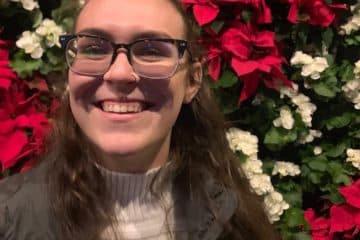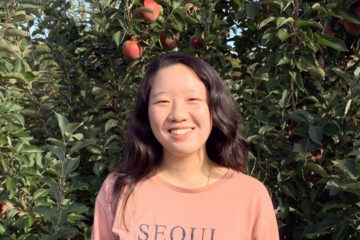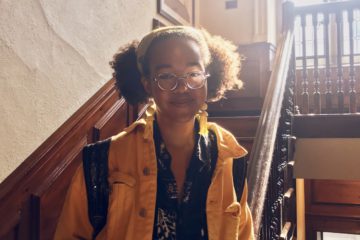With students located all over the world and coming from different financial backgrounds, how did Yale expect each student to have an equal experience during the COVID-19 pandemic? I am among the fortunate few to have fast internet access, but this wasn’t the case for many students—more in-class questions were about repeating an explanation than about expanding on the topic simply due to video/audio lag, the video quality would make handwritten equations difficult to see, and phone-in office hours were less natural than face-to-face discussions. Without a private workspace, attending classes and office hours and taking exams in the living room meant that I didn’t always have the most productivity-inducing environment. There were times when my mom would be on a phone call with doctors, and I would miss out on something that the professor said, or my dad would need assistance walking down the stairs during my lectures. Even with my circumstances, though, I still feel fortunate, because some students expressed that they had to do work on the floor for lack of desk space, and another talked about the construction going on around their apartment that disrupted their work. After the academic school year ended, COVID-19 continued to disproportionately affect students from lower-income families. As someone living in California with six family members, flying for six hours into New York and taking the two-hour train ride into New Haven just for a two-hour time slot to pack up my entire dorm was not only financially inaccessible, but also temporally impossible (it takes just an hour to take down all of the photographs and letters on my walls) and would pose danger to my two parents (both fall into the high-risk group for COVID-19), my just-born nephew, my sisters, and my brother-in-law given the long travel times there and back. When I contacted Yale Conference and Events about my inability to fly over and my worries about my items being damaged, as they had already done to many students’ items, I was only told to designate a proxy. Without friends living in New Haven and without financial assistance to hire a proxy, my only choice was to let Yale pack up all of my items despite seeing how many items they had already ruined due to rushed packing. Even though the items are insured up to $1000, no amount of money would replace the more sentimental items—all of the handwritten letters and cards I’ve received over the years, my mother’s jacket that she has had for 13 years now, and my younger sister’s spray painting that she made for my birthday. COVID-19 only accentuated the already existing inequities at Yale. The Student Share, more colloquially known as the Student Income Contribution, is just one of these factors that disproportionately affect minority students. I am fortunate enough to have most of my tuition covered by Yale and an outside scholarship to pay for my Student Share which means that I have received more gift aid than the billed expenses. However, none of this aid has ever been made available to me to put towards textbooks, travel, or other personal matters, even though Yale claims that the Student Share can be reduced by outside scholarships. Instead, in the summer of 2019, I worked in a lab under a Fellowship while working as an Undergraduate Learning Assistant (ULA) for the First-Year Scholars at Yale program. Then, during the school year, I worked up to four jobs at one point—a research assistant, TD Art Studio Aide, Good Life Center (GLC) Intern, and S&DS 10X ULA—exhausting myself and causing multiple breakdowns from stress even after I gave up my position as a GLC intern. Despite working all of these jobs, about 1/3 of the money went towards transportation to be able to visit my family during the breaks. I am very grateful for Yale’s extremely generous financial aid package and the opportunities that Yale has opened up for me. To ensure equality on campus, though, eliminating the Student Share means that students can concentrate on their studies, and any money that they do make from working can go towards other personal matters (e.g., taking care of family bills) rather than towards buying course materials. Alternatively, students would not need to work jobs and can instead put their time towards improving their academic performance or participating in extracurricular activities. I personally would be able to spend more time creating health graphics for the refugee population in New Haven through Health and Education Advocates for Refugees, making science more accessible to the general population through Yale Scientific Magazine, working with geriatric patients through Elder Horizons at the Yale New Haven Hospital, and determining the colocalization of a protein and neuronal subgroups in a neuroscience lab. Beyond extracurricular activities, I can also focus more on my physical and mental health, as I would have time to dedicate to an exercise routine, and my financial situation would be less stressful.
Antalique Tran, She/Hers, 2021, Timothy Dwight College


